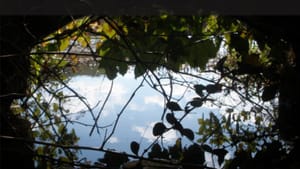Stay in the Loop
BSR publishes on a weekly schedule, with an email newsletter every Wednesday and Thursday morning. There’s no paywall, and subscribing is always free.
A musical friendship
Albany Records presents ‘Descent/Return: Music of John Harbison and James Primosch’

James Primosch has known his fellow American composer, the venerable John Harbison, since 1984, when Primosch was Harbison’s student at Tanglewood, the legendary New England music festival. The senior composer (Harbison was born in New Jersey in 1938; Primosch in Cleveland in 1956) has been a steadfast supporter of Primosch’s music ever since. A new album, Descent/Return: Music of John Harbison and James Primosch, is an intriguing cross-pollination of the voices of these two eloquent artists.
Lovely songs
The selection of music makes for telling comparisons. Each composer has contributed songs, both with words by excellent contemporary American poets, and both are also represented by music for solo piano.
The program opens with Harbison’s setting of six short poems by Michael Fried, grouped under the title “Simple Daylight.” The rhythms of the words are regular and flowing, their meanings evocative yet terse (this description of odor: “As tiny motes of ash, they, too, will remember / Dancing in sunlight, jostled by larger molecules”). Harbison responds with a complementary rhythm that lends a contrapuntal sense to the texture of these lovely songs, which blossom in one’s imagination with careful listening.
Open gates and night skies
Primosch, a professor of music at the University of Pennsylvania, gives us a pair of songs set to Philadelphia poet Susan Stewart’s series Descent/Return, which also serves as the title of this release. In Descent, Stewart portrays a subtle menace (“The gate’s ajar, early, late. Shadows loom and lie in wait.”). Primosch responds with music of edgy, angular energy, hanging the words on a sort of jazzy, syncopated trellis. Return counters with a lyrical, elegiac sensibility.
Primosch tends to work with a large stylistic toolbox. His vocal writing, as displayed on this album, certainly reflects this catholic manner. In addition to the Stewart settings, there are three short songs at the end of the program, including an homage to an old astronomer that includes sparkling impressionistic patterns on the upper end of the keyboard that suggest the starry night sky. There’s also a bouncy and fun musical take on the art of baseball pitching, and finally, a setting of “Who Do You Say That I Am” by Kathleen Norris that is full-blown post-Romantic, replete with a soaring, dramatic, Wagnerian vocal line and big, pealing piano chords that could have been written by Rachmaninoff.
Major contributions
Harbison’s Piano Sonata No. 2 is unquestionably a major contribution to the piano sonata canon. It is a large work, both in actual length and scope of vision, essentially neoclassical in structure, but also containing lively baroque dance elements and late-19th-century grandiosity, all packaged together in a cohesive, singular voice. This is a work of great beauty and grandeur.
Pure Contraption/Absolute Gift, a suite of five piano miniatures from Primosch, includes music inspired by poetry (specifically that of Stephen Crane and W.H. Auden). The pieces are, at turns, whimsical, dreamy, buoyant, and at all times, thoughtful.
Performances by the husband-and-wife team of Ryan MacEvoy McCullough and soprano Lucy Fitz Gibbon, who worked with both composers to realize this recording, are magnificent.
What, When, Where
Descent/Return: Music of John Harbison and James Primosch. Albany records, May 15, 2020. Get it here.
Sign up for our newsletter
All of the week's new articles, all in one place. Sign up for the free weekly BSR newsletters, and don't miss a conversation.
